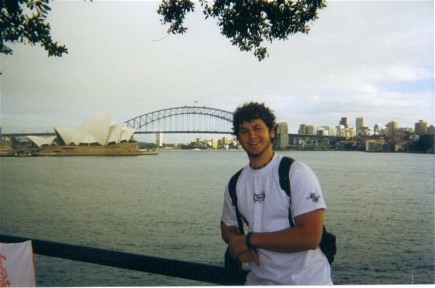The hustle and bustle of the holiday season is underway in The Gambia. I avoided the market at all costs today because everyone is preparing for the Muslim festival called Tobaski (Eid al-Adha in Arabic)
on Thursday.
From answers.com:
Eid al-Adha (Arabic: عيد الأضحى ‘Īd al-’Aḍḥā) is a religious festival celebrated by Muslims worldwide as a commemoration of Ibrahim's (Abraham's) willingness to sacrifice his son Ismael for Allah. It is one of two Eid festivals that Muslims celebrate. Like Eid ul-Fitr, Eid ul-Adha also begins with a short prayer followed by a sermon (khuṭba).
Eid al-Adha is three days long and starts on the 10th day of the month of Dhul Hijja (ذو الحجة) of the lunar Islamic calendar. This is the day after the pilgrims in Hajj, the annual pilgrimage to Mecca in Saudi Arabia by Muslims worldwide, descend from Mount Arafat. It happens to be approximately 70 days after the end of the month of Ramadan.
Men, women, and children are expected to dress in their finest clothing and perform the Eid prayer (Salatu'l-`id) in any mosque. Muslims who can afford to do so sacrifice their best domestic animals (usually sheep, but also camels, cows, and goats) as a symbol of Ibrahim's (Abraham's) sacrifice. The sacrificed animals, called "udhiya Arabic: أضحية", have to meet certain age and quality standards or else the animal is considered an unacceptable sacrifice. At the time of sacrifice, Allah's name is recited along with the offering statement and a supplication as Muhammad said. According to the Quran a large portion of the meat has to be given towards the poor and hungry people so they can all join in the feast which is held on Eid-ul-Adha.The remainder is cooked for the family celebration meal in which relatives and friends are invited to share. The regular charitable practices of the Muslim community are demonstrated during Eid ul-Adha by the concerted effort to see that no impoverished Muslim is left without sacrificial food during these days. Coming immediately after the annual hajj ends with the celebration of the Day of Mount Arafat. Eid ul-Adha is a concrete affirmation of what the Muslim community ethic means in practice. People in these days are expected to visit their relations, starting with their parents, then their families and friends.
Plan for Withdrawal:
Effective on January 1, 2008, I will no longer touch a computer in an attempt to repair it, or any piece of hardware, network cable, switch, firewall, virus, or anything that shares the likeness. I want to turn everything over to my counterparts and see how they handle things. My counterparts are enthusiastic, but the offices and businesses we've been doing work at are about as excited as an arctic seal going up for air at an icehole where a polar bear is waiting to club and mangle it (watched Blue Planet last night). I've been referring government offices/businesses to my counterparts for a while, but they keep insisting that I come personally instead because they say they trust me more. Some of these people calling me are not used to hearing the word "no", but I've been trying my best to explain to them that my goal in being here is to train Gambians to help other Gambians, and my counterparts are in fact properly trained and know what their doing. I've definitely pissed a few people off, but fortunately my counterparts usually solve the problems and the half-life for a grudge here is only a day or two.
I met an interesting photographer the other day that has been traveling around Africa for around 5 years. He said he's finally running out of money and is going back to the states.
Check out his website and publications:
http://www.thomasmillerphotographer.comI also just heard my good friend Joe Riis has a term photo published in the January '08 issue of National Geographic! Congrats Joe!
http://www.joeriis.comHappy Holidays, Merry Christmas, Happy New Years, Chanukkah, Tobaski, Eid al-Adha!
Here is a gift voucher for everyone:
Gift Voucher



